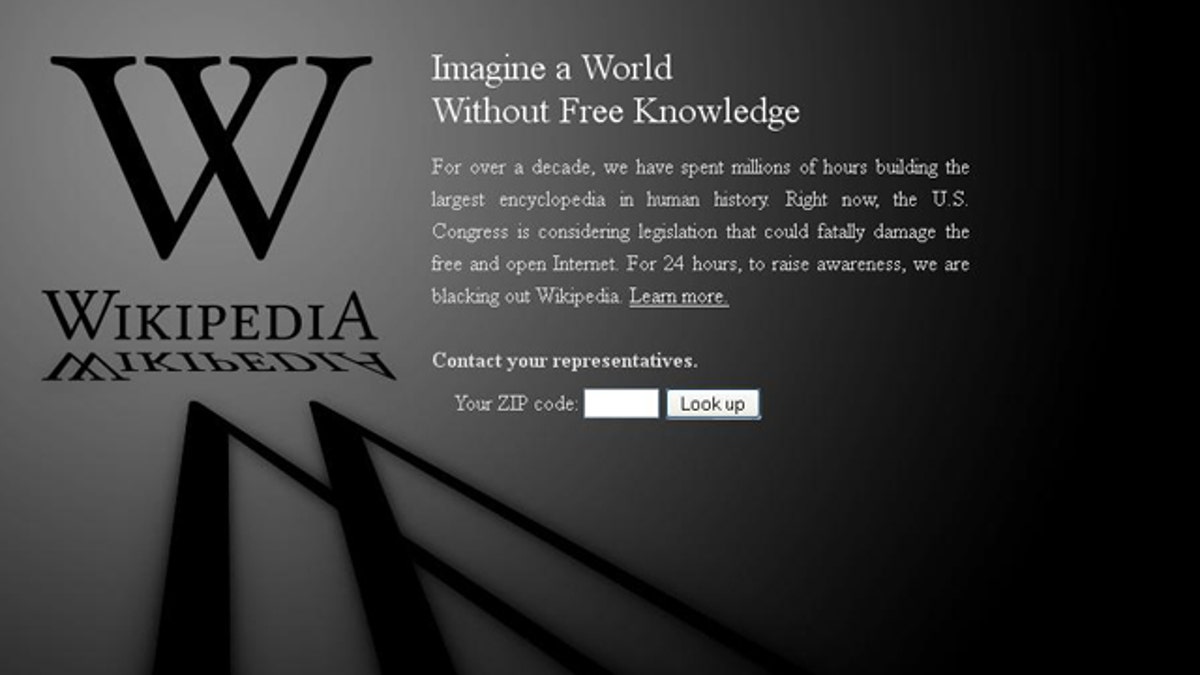
Jan. 18, 2012: Online encyclopedia Wikipedia has begun a 24-hour "blackout," a dramatic response to proposed legislation that many top websites claim will reshape the web. (Wikipedia)
SAN FRANCISCO – The lights have come back on at Wikipedia, following a 24-hour blackout that affected millions of users around the world.
At midnight Wednesday ET, Wikipedia's English language website was up and running again, accompanied by the message, "Thank you for protecting Wikipedia. (We're not done yet.)"
"More than 150 million people saw our message asking if you could imagine a world without free knowledge. You said no. You shut down Congress' switchboards. You melted their servers. Your voice was loud and strong. Millions of people have spoken in defense of a free and open internet," Wikipedia said in a statement.
The return of the online free information provider was welcomed by users who took to Twitter to express their relief the blackout was over.
"Welcome back, Wikipedia," Ernie Smith wrote, while Holly Fitzpatrick tweeted, "Never knew how much I relied on wikipedia until I procrastinated on my bio essays and had to scour for other links to tell me things..."
"In 50 years our grandchildren will ask us where we were the day Wikipedia went dark," Andrew Bee said on the microblogging site.
The shutdown -- which started at midnight Tuesday ET -- was protesting two bills aimed at cracking down on online piracy, the Stop Online Piracy Act (SOPA) introduced in the U.S. House of Representatives, and the Senate version, the Protect IP Act (PIPA).
Simply put, H.R. 3261 and S. 968 would require ISPs to block access to foreign websites that infringe on copyrights. Online piracy from China and elsewhere is a massive problem for the media industry, one that costs as much as $250 billion per year and costs the industry 750,000 jobs, according to a 2008 statement by Patrick Leahy, D-Vt. But how exactly the bills would counter piracy has many up in arms.
"There are smart, targeted ways to shut down foreign rogue websites without asking American companies to censor the Internet," Google spokeswoman Samantha Smith told FoxNews.com on Tuesday.
The draft legislation has won the backing of Hollywood, the music industry, the Business Software Alliance, the National Association of Manufacturers and the U.S. Chamber of Commerce.
But it has come under fire from digital rights and free speech organizations for allegedly paving the way for U.S. authorities to shut down websites accused of online piracy, including foreign sites, without due process and threatening the technical architecture of the Internet.








































